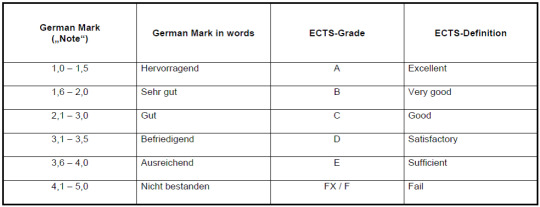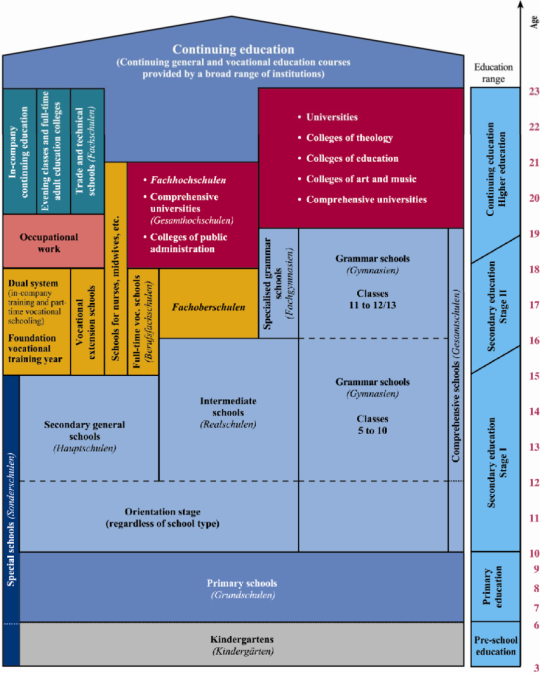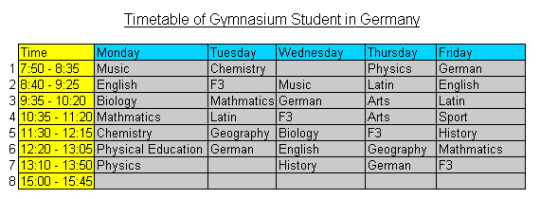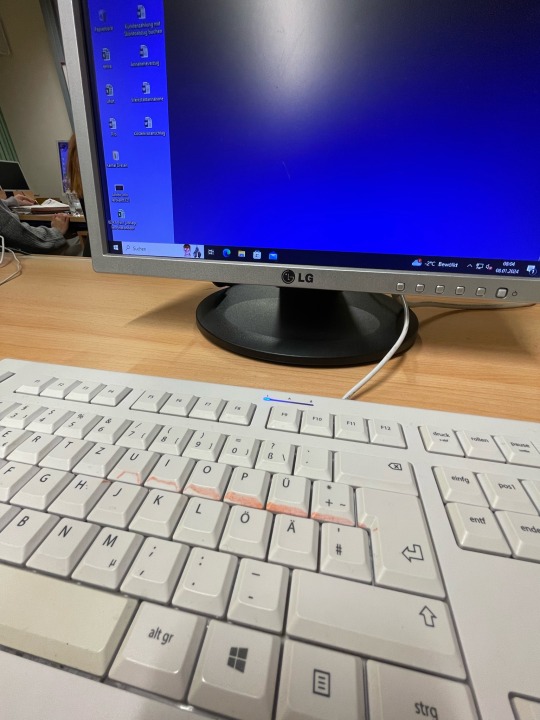#berufsschule
Text




"Ich weiß gar nicht mehr wo mir der Kopf steht."
Ansichtskarte
Neuzelle
Institut für Lehrerbildung
Bestensee: PGH "Rotophot" Werkstätten für Fototechnik, Bestensee bei Berlin (F 34-67 III 9 109)
1967
#Neuzelle#Bezirk Frankfurt Oder#1960er#1967#PGH Rotophot#Philokartie#DDRPhilokartie#InstitutFürLehrerbildung#Berufsschule#AlltagskulturDerDDR#akNeuzelle#BezirkFrankfurtOder#Ansichtskartenfotografie#AnsichtskartenfotografieDerDDR#deltiology#VintagePostcard
8 notes
·
View notes
Text
living in slazburg for 2 months and having a very annoying roommate – keeping u upted on how it goes
0 notes
Text
Der Neubau der Berufsschule in Höchstädt erlebt einen Meilenstein
Höchstädt: „…Wichtiger Schritt für das Millionenprojekt: Das Richtfest für den Praxisteil der Staatlichen Berufsschule wird gefeiert. In einem Jahr soll das Gebäude eingeweiht werden.
Es ist ein gigantisches Projekt. Nicht nur der Anblick des Gebäudes, sondern auch die blanken Zahlen beeindrucken: 22,5 Millionen Euro Gesamtkosten, knapp zehn Millionen Euro Förderung, zwei Bodenhallen, 16…

View On WordPress
#Anblick#Berufsschule#Förderung#Fortschritt#Gebäude#Gewächshaus#Höchstädt#Meilenstein#Millionenprojekt#Neubau#Nutzfläche#Projekt#Quadratmeter#Richtfest#Rohbau
0 notes
Text
meine prokrastination hat unerwartet ein neues level erreicht (ich habe ein spatort edit ausgegraben das ich im märz angefangen hab und wenn ich so weiter mache ist das ende der woche fertig)
#kontext: ich bin in der berufsschule und für mein gewissen möchte ich lernen#aber dadurch das ich das eigentlich kann hält sich die motivation stark in grenzen#im gegensatz zum letzten block lerne ich zwar diesmal überhaupt aber viel kommt hier trotzdem nicht bei rum#also abgesehen von edits natürlich#letzte woche hab ich aus prokrastinationsgründen noch memes über unsere lehrer erstellt#und jetzt sind wir hier#spatort
12 notes
·
View notes
Text
I just need to get thrown around a bit. Like you know how you throw babies up in the air a little & then catch them or throw toddlers onto a couch while they're giggling and having the time of their life? Somebody needs to do that to me
#doddie redet#I will also accept playful wrestling#my first week of Berufsschule the entire class went to hang out in a park and I was talking to a guy#and we were doing the friendly making fun of each other thing#which then escalated into playfully shoving and pushing each other#while we were sitting on the ground. and every time he pushed me i almost touched the ground with my head.#i need that again
9 notes
·
View notes
Text
My brain, out of fucking nowhere: hmmmm Goodween dyslexic??? 🤔🤔
#i have to stop pushing marginalizations on this man#könnte damit zusammen hängen dass mein bruder in der berufsschule so ein bisschen der fürsprechrr der leute mit lrs geworden ist#because disability rights#anyway#kaj rambles#to delete later#maybe better not. maybe just make it a late night report that's crawling with typos.
4 notes
·
View notes
Text
sorry more complaining. and i guess this is normal for a lot of unis but it's newish at mine, but a lot of our newer profs want to talk through ur presentation / paper before you write it so you have to make an appointment for that and then actually already know what u wanna write about and i simply never do that because...? who knows why. i am simply the worst ok. or they tie the module to some sort of trip to a museum or whatever which again i guess is normal but ive been able to make it through without attending those so far. why dont i attend those? once again i couldnt tell you. i would rather go on my own and write a report or smth. sorry. i dont know why. and all the organization and fucking emails is so exhausting for no reason. again i dont know what my problem is. on paper these things are so easy and im sure for a lot of people even the fun part of the degree but i actually feel like im going to die. banging my head against the wall until it explodes
#pax posts#long post#i should've put all this in the tags but i dont wanna change it now. sorry#im going to be in uni forever because im. say it with me now. never getting this degree but also cant really do anything else#id do an Ausbildung but contemplating berufsschule.... i would kill myself most swiftly im so serious
0 notes
Text




Ansichtskarte
Apolda
Ingenieurschule für Baustofftechnologie
Reichenbach (Vogtl): VEB BILD UND HEIMAT Reichenbach i.V. (V 11 50 A 1/B 11/66 9/3490)
Foto: W. Lange, Leipzig
1966
#Apolda#Berufsschule#1960er#1966#Bus#Schule#Philokartie#DDRPhilokartie#Architekturphilokartie#akApolda#BezirkErfurt#AlltagskulturDerDDR#DDRArchitektur#GDRArchitecture#SocialistArchitecture#Ansichtskartenfotografie#AnsichtskartenfotografieDerDDR#deltiology#VintagePostcard#Thüringen#Bezirk Erfurt#BILD UND HEIMAT#Werner Lange
13 notes
·
View notes
Text
ach du scheiße ich hab dann wieder ne einschulung und sv und fucking vertretungpläne
0 notes
Text
Meine Firma hatte neuerdings eine zweite Auszubildende. Mit vorheriger Ausbildung in einer verwandten Brache, daher wurde ihr beim Einstellungsgespräch angeboten doch das 1. Lehrjahr zu überspringen. Ist nicht so ungewöhnlich, hab ich damals auch gemacht, weiter kein Thema. Sie sagte ja, Vertrag wurde unterschrieben, Antrag auf Einstieg im 2. Lehrjahr gestellt und genehmigt.
Mein Chef hat jetzt, 6 Monate später, allerdings bemerkt dass es doch irgendwie nervig sei dass beide Azubinen jetzt im 2. Lehrjahr sind. Beide am gleichen Tag in der Berufsschule, beide machen gleichzeitig Prüfung, schien alles ein großes Problem für ihn zu sein. Womit er dann nicht erstmal zu dem Typen rannte der für Personal-Angelegenheiten zuständig ist, sondern die Azubine am Freitagmorgen anblöffte. Keine Ahnung, lösungsorientiertes Mobving nennt sich das. Was weiß ich. Handwerk halt. Erstmal losbrüllen, vielleicht löst sich das Problem vor Schreck von allein. Was ein vibe
Er wollte jetzt, dass sie (nach Beginn des Schuljahres, mind you) zurück in's 1. geht. Die Azubine beworb sich vor Schreck dann über's Wochenende bei zwei anderen Firmen, weil fuck that. Verständlich. Leider erwischte sie dabei die Firma des besties unseres Chefs, der sofort am Telefon hing um die Azubine bei unserem Chef anzuschwärzen. Die Stimmung am Montag war bestens, der Azubine wurde Vertrauensbruch vorgeworfen (wobei... Lunte zu riechen weil man nach einem halben Jahr spontan den Ausbildungsvertrag ändern will ist in my book kein Vetrauensbruch), gegen Mittag stand dann ihre Mutter auf der Matte. Thank god, endlich ein Erwachsener.
Mein Chef ließ sich nicht dazu herab dem Gespräch mit Azubine plus Mutter beizuwohnen. Ihre einzige Forderung war dabei, dass sie nach wie vor in's zweite Lehrjahr wollte- wie's in ihrem Ausbildungsvertrag steht. Seit 6 Monaten. Nö, is nich.
Und dann hatten wir halt eine Azubine weniger. Noch können wetten abgegeben werden wann hier wieder jemand einen monolog darüber hält dass die jungen Leute alle nicht richtig arbeiten wollen, und wir deswegen kaum Lehrlinge bekommen
#ich musste ne heulende achtzehnjährige trösten die eigentlich lieber mit einem der “erwachsenen” mitarbeiter gesprochen hätte#leider wartet mein chef immer ab bis alle die was zu melden haben bereirs weg sind. und packt dann die richtig miesen nummern aus#also durfte sie sich vom klassenclown des hauses anhören dass sie alles richtig gemacht hat etc etc#cool cool cool cool cool. im emotionally devastated and physically fucked ich liebe diesen laden#es ist montag.
207 notes
·
View notes
Text

Berufsschule Angerstraße (1926-27) in Hamburg, Germany, by Fritz Schumacher. Photo by Carl Dransfeld.
456 notes
·
View notes
Text
Deutschribing Germany
Education
Education in Germany is free and compulsory between ages six and sixteen. States (Länder) are largely responsible for education, with the federal government playing a minor role.
Types of schools
The vast majority of children attend state schools, but there are private schools (Ersatzschulen) as well. The latter have very low tuition fees and are also subsidized by the state, which effectively makes them privately-run schools funded by the state. Some are run by religious groups.
School terms
The school year is divided into two terms (from August to January and from February to July) and starts after the summer break, which differs from state to state but usually finishes in mid/end-August. Children have twelve weeks of vacation in addition to public holidays. Exact dates differ between states, but there are generally six weeks of summer vacation, two around Christmas, two around Easter, and two in the fall during the harvest season, since farmers used to need their children for field work.

Grades
The German grading system is as follows, from highest to lowest: sehr gut (1.0–1.5), gut (1.6–2.5), befriedigend (2.6–3.5), ausreichend (3.6–4.0), and nicht bestanden (4.1–5.0). The minimum to pass is four.

Levels

Preschool (Kindergarten)
Preschool education is neither mandatory nor free. Children between the ages of 2 and 6 attend Kindertagesstätte (Kita, “children’s daycare centers”). Many Kitas follow a certain educational approach, such as Montessori or Reggio Emilia.
Primary education (Primarstufe)
Primary education takes place in Grundschulen and generally lasts four years, from 6 to 10 years old. In Berlin and Brandenburg, it lasts six years.
Students are typically taught art, a foreign language (English or French), general studies (natural and social science), German, math, music, physical education, and religion or ethics.
Secondary education (Sekundarstufe)
Secondary education can take place in any of the following schools:
Gymnasium (grammar school) until grade 12 or 13 (ages 10–11 to 17–18/18–19), with Abitur as exit exam to qualify for university
Realschule (intermediate school) until grade 10 (ages 10–11 to 15–16), with Realschulabschluss
Hauptschule (secondary general school) until grade 9 or 10 (ages 10–11 to 14–15/15–16), with Hauptschulabschluss
Gesamtschule (comprehensive school) until grade 10 or 12/13 (ages 10–11 to 15–16 or 17–18/18–19)
The Gymnasium provides in-depth general education for university studies. Hauptschulen teach basic general education leading to vocational school or university entrance qualification. Realschule offers more extensive education than Hauptschule, leading to a vocational or university entrance qualification. A Gesamtschule combines all the aforementioned schools.
There are about twelve compulsory subjects in every grade: biology, chemistry, civics/social/political studies, up to three foreign languages, geography, German, history, math, music, physical education, physics, religion/ethics, and visual arts.

(F3 means Fremdsprache 3 [third foreign language], which is usually French or Spanish)
In grades 11–12/13, each student majors in two or three subjects (Leistungskurse), in which there are usually five lessons per week. The other subjects (Grundkurse) are usually taught three times a week.
Vocational training (Berufsbildung)
Vocational training lasts between two and three and a half years and can take place in any of the following types of school:
Berufsschule (vocational school): the standard type of vocational school, it prepares students for further vocational education or for a job in a profession. Apprentices attend school twice a week and spend the rest of the week working at a company, so they gain knowledge of theory and practice.
Berufsfachschule: similar to Berufsschule, it is aimed at people who want to study specific subjects, such as nursing or occupational therapy.
Fachoberschule (vocational high school): students who have obtained a Realschulabschluss or Hauptschulabschluss can attend a Fachoberschule, where they will specialize themselves in technology, economy, or administration and management, among other subjects. After completing the program, they can study for a university degree after passing the Abitur.
Berufsoberschule (upper vocational school): those who want to attend one need to have graduated from a Berufsschule. It provides in-depth education and training.
Higher education (Tertiärbereich)
To attend university, students need to pass the Abitur exams, of which at least one is oral. They are tested on four or five subjects, including their two or three Leistungskurse and two or three Grundkurse (German, math, and the first foreign language). All knowledge areas must be covered, including language, literature and the arts; social sciences; math, natural sciences and technology, and sports. Each semester of a subject studied in the final two years of Gymnasium yields up to fifteen points, where advanced courses may count double and final examinations count quadruple.
There are 380 universities in Germany, of which 114 are private. Public universities charge fees of around €150–350 per semester, which often include the cost of public transportation. Tertiary education institutions are classified into Universität or Hochschule. The former term is reserved for those which have the right to confer doctorates, in a similar distinction to universities and colleges in the United States. Fachhochschulen (Universities of Applied Sciences) are a type of Hochschule that concentrates on applied science and has a more practical profile with a focus on employability.
There are three types of admissions procedures for degree programs:
Free admissions: every applicant who fulfills the requirements is admitted. This is usually the case in programs in which many students quit, such as engineering, mathematics, or physics.
Local admission restrictions: only a limited number of places are available and students are admitting according to numerus clausus, whose criteria vary depending on the institution and the program but generally include the final grade of the Abitur, a weighted grade average that increases the weight of relevant school subjects, interviews, motivation letters, and/or letters of recommendation.
Nationwide admission restrictions: to study dentistry, medicine, pharmacy, or veterinary medicine, there is a nationwide numerus clausus in which applications are handled centrally for all universities.
There are three official university degrees: Bachelor (bachelor’s degree) takes three years to complete, Master (master’s degree) lasts two years, and Doktorat (doctoral degree or PhD) takes between two and five years.
Students can usually choose freely from all courses offered by the university, but all bachelor’s degree programs require a number of particular compulsory courses in the field of the study program.
62 notes
·
View notes
Text
Physiotherapie
Nachhaltige Bewegungstherapie
Ungefähr zwei von drei Deutschen leiden gelegentlich unter Rückenschmerzen. Nicht umsonst wird dieses Leid auch als Volkskrankheit Nummer 1 bezeichnet, denn der prozentuale Anteil an krankheitsbedingten Fehlen durch Rückenbeschwerden in der Arbeit ist enorm. Wer würde sich dabei nicht den heilenden Händen eines Physiotherapeuten anvertrauen, um durch Massagen, Stabilisierungsübungen und Krankengymnastik die Schmerzen zu lindern?
Berufsbild der Physiotherapeuten
Der Heilberuf Physiotherapeut bietet ein breites Einsatzfeld. Vor allem in Praxen, Krankenhäusern, Fitness-Studios oder Sportverbänden wie Fußballvereine arbeiten die Physiotherapeuten. Dabei sind die Begriffe Rehabilitation und Prävention von großer Bedeutung. Rehabilitation bezeichnet die Wiederherstellung der ursprünglichen Bewegungsmöglichkeiten, die durch Verletzungen oder Alter eingeschränkt wurden. Prävention ist damit sehr eng verbunden, denn dabei ist das Ziel das Vorbeugen von weiteren Problemen. Das geschieht zum Beispiel durch die Übungen, die die Patienten zu Hause fortführen sollen. Es gibt verschiedene Behandlungsformen in der Physiotherapie. Dazu zählen Wärme, Wasseranwendungen, Infrarot- und UV-Licht und vor allem die mechanische Behandlung (zum Beispiel Massagen). Natürlich erfordert das auch bestimmte Grundvoraussetzungen für die Physiotherapeuten. Da der Kundenkontakt sehr hoch ist, sollte man keine Scheu haben Menschen, ob jung oder alt, anzufassen. Außerdem ist eine sehr genaue und gezielte Durchführung der Heilverfahren wichtig, da sonst weitere Verletzungen auftreten können. Auch das Auswählen, Durchführen und Erstellen eines Behandlungsplans liegt bei den Physiotherapeuten.
Ausbildung in der Physiotherapie
Wie bei jedem Ausbildungsberuf gibt es auch in der Physiotherapie bestimmte Eigenschaften, die die Auszubildenden mit sich bringen sollten. Durch den sehr hohen Kundenkontakt ist Kommunikation sehr wichtig. Die Physiotherapeuten müssen offen sein und Gespräche führen, aber zugleich auch die Patienten motivieren, damit der Erfolg auch langfristig anhält. Dabei ist natürlich auch das Einfühlungsvermögen von großer Bedeutung, da man individuell an die Problematik des jeweiligen Patienten rangehen muss. Einige sind vielleicht etwas sensibel und andere brauchen vielleicht eine Person die Klartext redet und ihnen den nötigen Anstoß gibt. Da der Beruf eines Physiotherapeuten auch mit dem Fortschritt der Medizin einhergeht, ist es wichtig, dass man den Willen besitzt sich weiterbilden zu wollen, da es immer wieder neue Heilverfahren gibt und man dabei auch immer auf den neuesten Stand sein sollte. Des Weiteren muss man mindestens 17 Jahre alt sein, um die dreijährige Ausbildung an einer Berufsschule durchführen zu können. Hier wird der Unterschied zu den meisten anderen Ausbildungsmöglichkeiten deutlich, da die komplette Ausbildung an einer Berufsschule absolviert wird und die Azubis auch keine Ausbildungsvergütung erhalten. Sie müssen sogar Gebühren zahlen, falls sie an einer Privatschule sind. Themengebiete sind dabei unter anderen die Anatomie des Körpers, sprich Aufbau und Funktion, Ursachen und Arten von Krankheitserregern und Erkrankungen und der Umgang mit den Kunden, bei dem sowohl psychologische, als auch pädagogische Aspekte eine Rolle spielen. Auch die Anwendung und Technik von Krankengymnastik, sowie der Entwurf und die Anleitungen von Übungen und Selbstübungsprogrammen, sind Teile der Ausbildung. Auch ein Studium im Bereich der Physiotherapie ist möglich.
#faszientherapie#faszientherapie münster#krankengymnastik#krankengymnastik münster#physiotherapie#physiotherapie münster
4 notes
·
View notes
Text
it's so crazy to me how, in the US, you can (and sometimes must) just drop out of high school
Like, idk if on the other hand this might be strange to US Americans, but in Germany you legally have to be in school until you're 18 years old. I'm not exaggerating - the earliest you can leave a typical school is after 9th grade (~ 15y/o*) and then you're obligated to do an apprenticeship, which includes attending a "Berufsschule" ("Work-/Jobschool").
Dropping out of school because you need to earn money is only possible through apprenticeship + school.
*highschool until 12th grade (~18y/o) is called "das Gymnasium"
#wdym you (a child/teen) had to provide for your family?#so crazy to me!!!!#and I'm so sorry that teens in the US are not protected like that#german#german culture
38 notes
·
View notes
Text
I miss being on a train multiple times each month... sigh...
#for Berufsschule I had to take the train FOUR TIMES in the two weeks of school... and an U-Bahn multiple times every day...#I love you public transport you're so fun 😭#doddie redet
2 notes
·
View notes
